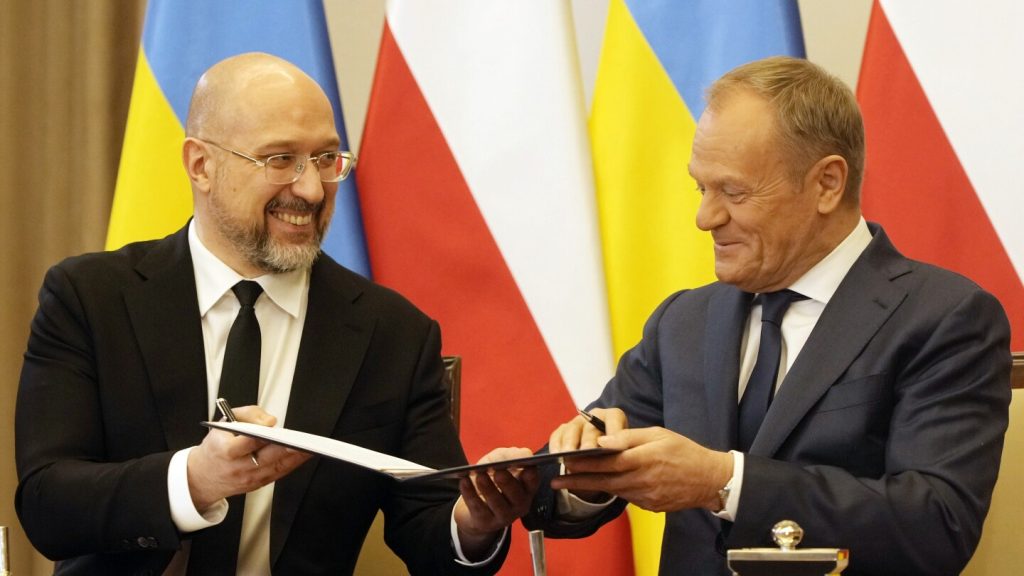The Prime Ministers of Ukraine and Poland have met to address the demands of Polish and western European farmers who are concerned about cheap Ukrainian food imports undermining their livelihoods. While progress was made during the talks, no breakthrough was announced. The leaders discussed proposals to address the farmers’ discontent, including the possibility of implementing a 50% tax on Russian and Belarusian food imports. They emphasized the importance of finding solutions that are beneficial for both sides and acknowledged the need for further work to be done.
Both Prime Ministers expressed optimism about reaching a joint goal to address the farmers’ concerns, with Donald Tusk stating that they are “just one step away” from achieving this. They signed a joint declaration affirming that trade liberalization measures should benefit the economies of Poland, other EU members, and Ukraine without destabilizing their markets. The declaration also emphasized the importance of taking into account the changing security situation in Ukraine when implementing trade measures. It was noted that progress was being made towards lifting the border blockades and resolving critical issues that lead to such blockades.
Farmers in many European countries have been protesting against cheap imports from Ukraine, leading to tensions between Kyiv and Warsaw over the tax-free inflow of Ukrainian farm produce. During the talks, Tusk suggested seeking quotas on the imports, as well as boosting Ukrainian exports to needy countries outside of Europe. Prime Minister Shmyhal mentioned that Ukraine has agreed to certain limitations, although these were not specified. The EU has been supportive of Ukrainian farm produce exports following Russia’s invasion in 2022, but there have been discussions around reintroducing quotas on some Ukrainian foods to address European farmers’ complaints.
The EU’s decision to open its doors to Ukrainian farm produce was aimed at helping Ukraine generate income from its exports after traditional trade routes were disrupted by Russia’s invasion. However, concerns have been raised by European farmers about the impact of cheap Ukrainian imports on their livelihoods, leading to protests and tensions between countries. Addressing these issues has become a priority for both Ukraine and Poland, with discussions focusing on finding solutions that benefit all parties involved. While progress has been made during the talks, further work is needed to address the complex challenges faced by farmers and ensure a mutually beneficial outcome for both sides.


